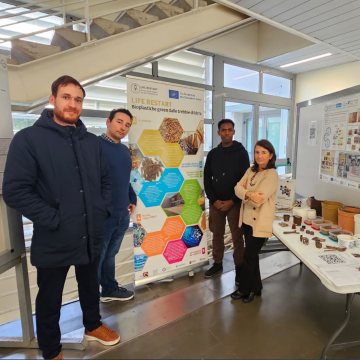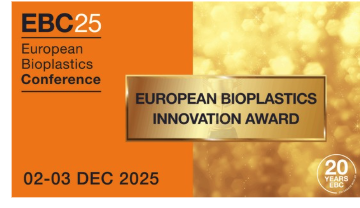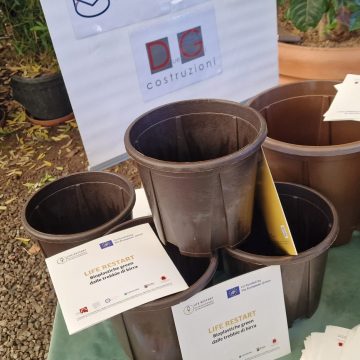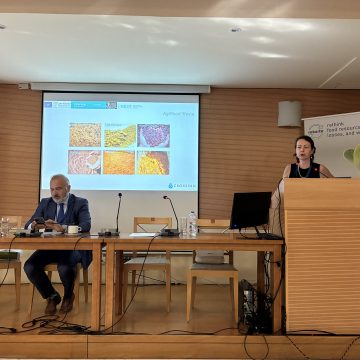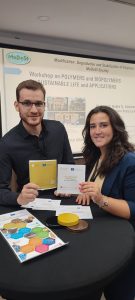 Engineers Salim Brahimi and Aurora Falcone, respectively PhD student and research fellow at the Department of Engineering of the University of Messina and both belonging to the research group of Professor Annamaria Visco, scientific responsible for UNIME of the LIFE RESTART project, spoke at the international workshop Polymers and Biopolymers for sustanaible Life and applications held in Sofia, Bulgaria, from the 3rd to the 5th of September 2023.
Engineers Salim Brahimi and Aurora Falcone, respectively PhD student and research fellow at the Department of Engineering of the University of Messina and both belonging to the research group of Professor Annamaria Visco, scientific responsible for UNIME of the LIFE RESTART project, spoke at the international workshop Polymers and Biopolymers for sustanaible Life and applications held in Sofia, Bulgaria, from the 3rd to the 5th of September 2023.
Organised by the Modification Degradation and Stabilisation (MoDeSt) Society under the coordination of Professor Nadka Dintcheva, MoDeSt23 brought together many researchers from academia, leading research organisations and representatives from national and international industries working in the area of sustainability of polymeric and biopolymeric materials and their composites to discuss polymers, biopolymers and composites for sustainable applications; plastics and microplastics in the environment and their recovery/removal; degradation, biodegradation and recycling.
The worshop is part of a series of international events supported by the Modification Degradation and Stabilisation (MoDeSt) Society, which aims to promote a common platform for knowledge exchange, mobility and networking among scientists and engineers working in the field of polymer modification, degradation and stabilisation, aiming to develop collaborations between the worlds of industry and public research.
Many potential applications
In this context, Brahimi and Falcone presented two contributions entitled Biodegradation Of Agrifood Waste/Polybutylene Succinate Biocomposite, and Resistance Of Bio-Polybutylene Succinate To Photodegradation Induced By Exposure To Uvc Rays, respectively. Extensive work shows that by fine-tuning the composition of agrifood waste bioplastics, it is possible to control their rate of biodegradation in the soil and their resistance to UVC rays, for possible uses where sterilisation is required.
The ability to modulate degradation time offers potential applications in various sectors, such as floriculture, where biodegradable bioplastics could replace the millions of traditional fossil-based plastic pots currently in use, encouraging the adoption of new sustainable materials for everyday use.
In Sofia, the presentations by Brahimi and Falcone stimulated several interventions by attending researchers and stakeholders, who showed considerable interest in the topics presented, particularly with respect to the production techniques of the materials and the physical-mechanical characteristics of the products obtained.
Click here to see more on LIFE RESTART events
Co-funded by the European Union. Views and opinions expressed are however those of the author(s) only and do not necessarily reflect those of the European Union or CINEA. Neither the European Union nor the granting authority can be held responsible for them.



